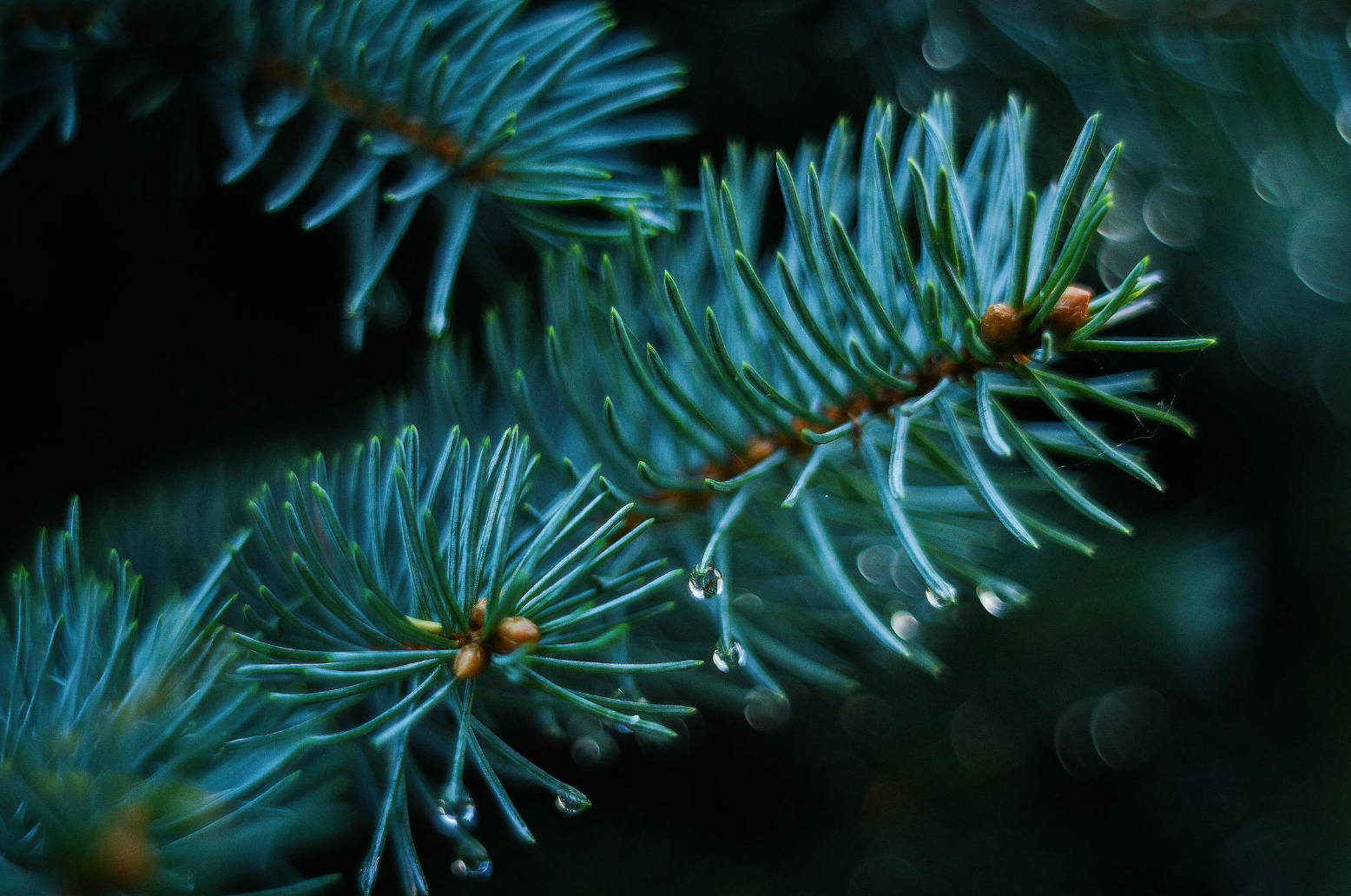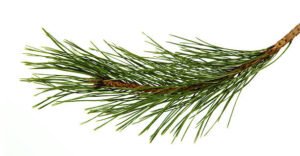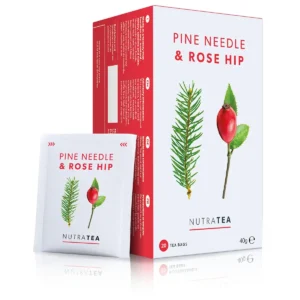Pine Needle Tea Supports the Immune System and Slows Aging

The Eternal Life of Pine Needles
Pine needles are the fragrant leaves of pine trees (Pinus spp.). Pine defies the harsh and barren winter months by retaining its green leaves year-round. The evergreen needles make a life-protecting tea traditionally relied upon throughout the northern hemisphere. Regularly drinking pine needle tea supports the immune system, prevents and shortens colds, lowers high blood pressure, and slows the aging process. The tea’s taste is light and pleasantly piney. Pine symbolizes eternal life in many cultures for good reason…
Pine needles contain:
- A wealth of vitamin C and smaller amounts of vitamins A, D, E, and K.
- Antioxidants
- Pinene
-

A cluster of pine needles is called a fascicle. There are many fascicles on this branch.
Arginine, and other amino acids.
Perfect Cold Remedy
Pine needles contain five times more vitamin C than lemons! No wonder the tea was vital to surviving the winter, when most plants are dormant. Vitamin C helps the body ward off illness and fight infection. Pine needle tea is an expectorant, helping you cough up phlegm and mucus and relieve chest congestion. Pinene, the terpene responsible for pine’s relaxing fragrance, supports respiratory health by widening the bronchi and relaxing the muscles in the lungs. Furthermore, pinene eases pain and is antiviral and antibacterial. This explains how the tea eases coughing and soothes a sore throat.
Supports Longevity
Chronic inflammation accelerates aging. The vitamin C and pinene in pine needles slows aging by fighting inflammation. High levels of antioxidants in pine needles absorb and neutralize cell-damaging free radicals. Vitamins A, D, E, and K support healthy eye, skin, and bone health. It may also support a healthy metabolism, preventing obesity. Pine needle tea protects the brain; thanks to its bountiful vitamin C, it supports production of the neurotransmitters serotonin and dopamine and wards off Alzheimer’s disease. Mental health is key to aging with grace and strength, like the pine species which can grow tall for hundreds and even thousands of years. Pine retains its green year-round, and those who imbibe its essence in tea will also share in its vibrant longevity.
Vasodilator
Pine needles contain arginine, an amino acid that helps the body build protein. It is a vasodilator, meaning it dilates constricted blood vessels. This property makes it useful in treating heart disease, as it lowers blood pressure and increases blood flow to the heart muscle. It also remedies erectile dysfunction by improving blood circulation.
Diuretic
The lymphatic system transports destroyed bacteria and waste into the blood stream, where they are removed by the liver and kidneys. The dead bacteria and waste products are then flushed from the body via urination and defecation. Pine needles are diuretic, meaning they increase urination. This supports the body’s natural detoxification processes. It also helps eliminate excess fluid, which can be helpful in cases of heart disease and kidney failure.

Pine forests are troves of biodiversity.
A story about pine…
French explorer Jacque Cartier’s crew was dying of scurvy, caused by vitamin C deficiency, when they reached Canada in the winter of 1536. The native Iroquois tribe understood their condition and saved the crews’ lives with infusions of pine needles and bark. The vitamin C and arginine in pine rapidly reversed the ravages of scurvy. The crew thereafter referred to the pine as the tree of life. The conifer was brought back to France, where recognition of the tree’s medicinal value contributed to the resurrection of botany in Europe’s Age of Reason.
Pine Needle and Rose Hip Tea
NutraTea herbalists blended rose hips with pine needles to create a tea that supports the immune system and supplies plenty of vitamin C through the changing seasons. The pine tree’s antioxidant, anti-inflammatory, antiviral, antibacterial, painkilling, neuroprotective, vasodilating properties are yours when you regularly drink pine needle infusions. Take a deep breath and smell the pine forest as you enjoy your own cup of the tree of life.

